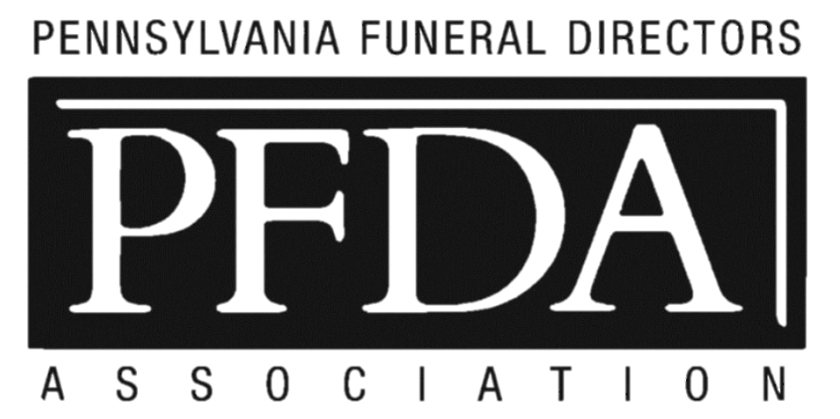Legal Considerations of Death
Legal Considerations of Death
The following article was written for our funeral home by Jeffrey P. Bowe, Esq. of Bowe & Odorizzi, Tamaqua. Reproduction text is strictly forbidden without prior written consent from Bowe & Odorizzi and the Zizelmann-Gulla Funeral Home and Cremation Services, Inc.
How do I Settle the Affairs of my Deceased Loved One?
We strongly advise you to meet with an attorney to determine what must be done to finalize the affairs of your loved one. Some attorneys are willing to meet with you for no obligation to discuss what must be done, what they can do for you, and finally estimate what it may cost. Do not hesitate to ask us to recommend attorneys we know and trust who emphasize in this type of law in their legal practice.
Obviously, the ultimate goals which must be achieved in settling an estate are to:
- Efficiently carry out the wishes of your loved one;
- Make sure all obligations of the deceased are paid or provided for; and
- Distribute all assets in accordance with the deceased's estate plan.
Within this context, some of the issues to be addressed which should be handled by an attorney include:
- Is probate necessary?
Based upon television shows and articles in the newspapers and magazines, the term "probate" has become synonymous with a very mysterious and expensive proceeding which enables attorneys to charge excess legal fees. If handled properly, this simply is not the case. If the deceased left a will, it may be necessary to file or "probate" the will with the local probate court. In Pennsylvania this is a very simple procedure. It takes place in less than fifteen minutes and can be accomplished at your attorney's office. The "probating" or filing of the deceased's will is necessary so that the executor who is named in the will be able to act in that capacity. There is a small filing fee for this process, but this filing fee is the only charge directly attributable to the probate proceeding. Before you meet with an attorney, it is important that you organize the deceased's financial records including a list of all assets and debts and have at least two years of income tax returns available for your attorney's review. This material will allow your attorney to determine whether the will should be probated.
If probate is required, the first step is to appoint a personal representative who will be responsible for carrying out the decedent's wishes. If the deceased's will designates a personal representative, then that person will be responsible. If the deceased had no will, then an administrator must be appointed who will ordinarily be one or more of the decedent's closest relatives. Ordinarily, if a parent dies without a will, then all children have the right to administer the estate although some may wish to renounce or decline because they live far away, do not want the responsibility, or trust the judgment of their sibling to act. - Administration of probate assets
If assets owned by the deceased are controlled by his will, then the asset is known as a probate asset and the will must be filed before those assets can be made available to the estate. Ordinarily your attorney will open an estate bank account. Creating a special bank account for which only you can sign checks will enable a central location for all assets to be received and all debts to be paid. An important task with regard to these assets is to determine what their value was at the day the decedent died. This is usually a simple matter for bank accounts, stocks, and securities but may require an appraisal if real estate is involved.
- Administration of non-probate assets
By definition, non-probate assets are administered outside the directions of the deceased's will. Often the type of asset will designate who should be entitled to the asset or the death benefit. Examples of non-probate assets include life insurance, pension benefits, joint-assets, payable on death bank/brokerage accounts, and accounts listed in the decedent's name in trust for a designated beneficiary. Some of these assets are distributed to the designated beneficiary free of any inheritance tax. Your attorney should know what assets are subject to tax and which are not.
- Payment of debts
Once an estate is opened by probating the deceased's will, advertisements are entered in newspapers and legal journals to notify potential creditors of the creation of the estate. The advertisements are important because creditors have one year from the date of advertisement to present claims.
- State inheritance tax liability
An estate in Pennsylvania is required to file a state inheritance tax return within nine months of the date of death. The tax rates depend upon the relationship of the recipient of the assets to the deceased. Between spouses there is no inheritance tax. From parent to child the tax rate is 4.5%, between siblings the tax rate is 12%, and all others pay tax at the rate of 15%. There is a 5% discount in the amount of the tax if payment is made within three months from the date of death. Because of this discount, it is important that you reach an attorney shortly after the decedent's date of death so as not to jeopardize the chance to take advantage of this discount.
- Inventory of safe deposit box
If the deceased owned a safe deposit box, your attorney can notify the Pennsylvania Department of Revenue of their representation of the estate and obtain permission from the Department to open and inventory the safe deposit box. The safe deposit box will be frozen until the inventory is accomplished.
- Federal estate tax return
As of January 1, 2011, there is no federal estate tax return due unless the gross assets of the deceased (including probate assets and non-probate assets) exceed $3,500,000.00. A federal estate tax return is due within nine months from the day the decedent died. There is no corresponding discount for filing the tax return within three months as is the situation with the Pennsylvania state inheritance tax return.
- Estate income tax returns
When the deceased dies, an individual income tax return is required to be filed from January 1 of the year of death until the date of death. Any income earned after the date of death must be reported in an estate income tax return. Your attorney should be aware of how to prepare and file these returns as they may be needed not only to report income including interest and dividends earned after the deceased passed away, but also for the reporting of capital gains due to the sale of securities or real estate.
- Closing the estate
Once all debts have been paid and all applicable inheritance tax returns (both state and federal) and income tax returns filed, it is then necessary to close out the estate. The estate can either be closed by filing a formal accounting through the court process or by having an informal account agreed to by all individuals who have inherited under the deceased's last will and testament. There are advantages and disadvantages to each procedure; it is therefore important to consult with your attorney to determine what is best for your situation.
- Legal Fees
Obviously, it is very important to discuss with any attorney what their legal fees will be for representing you in the matter of estates. Given uncertainties as to exactly what must be done, it may be impossible for an attorney to give you a precise quote as to his fee. However, the attorney should be able to communicate a rough estimate which may change depending on the complexity and difficulty of the estate to be handled. Normally, the issue of attorney fees should be handled in a written fee engagement letter.
Estate administration can last from twelve to eighteen months, but that is not to mean the distribution of assets will take that long. An attorney can often provide for distributions in advance of the completion of the estate so that many of the tasks performed at the end of the administration of the decedent's estate take place after distribution to all heirs. An experienced estate law attorney can help you efficiently and smoothly handle the estate process to your satisfaction.
Zizelmann-Gulla Funeral Home and Cremation Services, Inc. | (570) 668-0390
500 East Broad Street, Tamaqua, PA 18252
© Zizelmann-Gulla Funeral Home and Cremation Services, Inc.
Crafted with care by Frazer Consultants & TA

